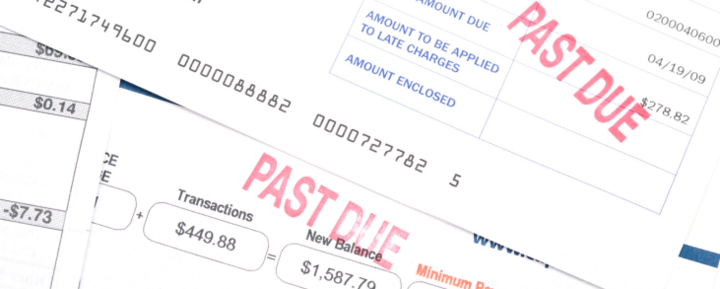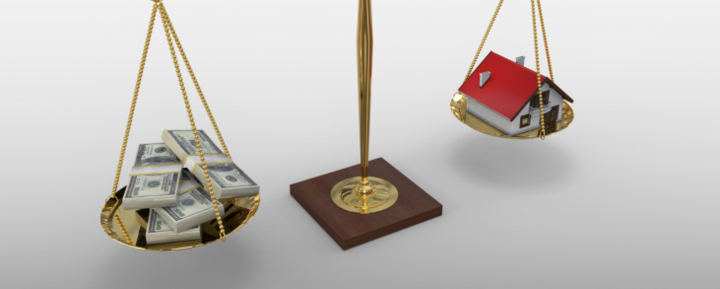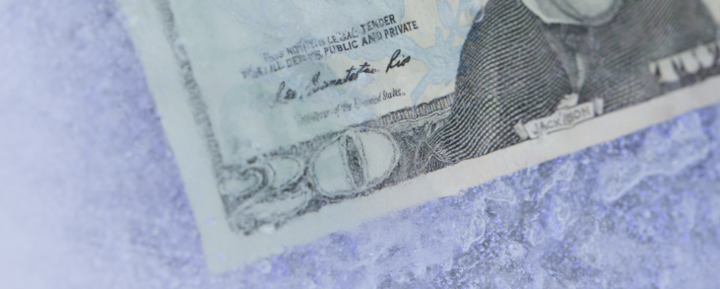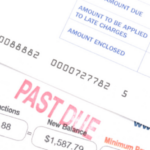If you’re stuck in credit card debt, there are several possible outcomes. One possible outcome, if you fall far enough behind on your payments, is that your lender will charge off your debt, which essentially means writing it off as a loss for accounting purposes.
A charge-off may or may not impact you as the borrower. Unlike what it sounds like, the lender isn’t necessarily giving up collecting the debt, and you may still get phone calls, or even face a lawsuit from your lender. It’s important to understand the various legal and financial consequences of having your debt charged off, the potential negative impact on your credit, and what to do if you’ve had a debt charged off (or fear you might).
What Does Charged Off as Bad Debt Mean?
When something is charged off as bad debt, it means the lender has written it off as a loss. It typically happens after a certain period of delinquency on your account, such as 180 days.
Your account will typically be closed when your debt is charged off, meaning you won’t be able to make any new charges. The lender may also sell your debt to a collection agency, often for pennies on the dollar.
Here’s the catch, though: a charge-off doesn’t necessarily mean you don’t still owe the debt. The original creditor (or a debt buyer the lender has sold the debt to) can still continue collection efforts. In fact, the creditor can still sue you to collect the debt.
More than anything, a charge-off is typically done by the lender for accounting purposes — it doesn’t necessarily mean anything has changed for you.
How Charge-Offs Affect Your Credit
A charge-off can have a significant impact on your credit. First, long before the charge-off occurs, you would have probably seen your credit score dip because of missed or late payments. The impact of this depends on your credit score to begin with. For example, someone with good or excellent credit is going to see a much larger drop from a few missed payments versus someone who already has poor credit.
Once the lender or credit card issuer charges off the debt, the charge-off will appear on your credit report, which can further damage your credit score. Additionally, because other lenders can see the charge-off, it may prevent you from qualifying for new credit, including loans and credit cards.
Missed payments, delinquencies, and charge-offs remain on your credit report for seven years, though their impact on your credit score will probably lessen over time. Additionally, the charge-off will stay on your credit report even if you pay off the debt, but it may not hurt your credit as much.
Charge-Offs vs. Collections
Charge-offs and collections accounts may appear on your credit report separately. First, when your lender charges off your outstanding debt, it will appear on your credit report. If the lender then sells the debt to a third-party collection agency, that will appear on your report as an entirely new account.
If the debt is sold to a debt collector, the balance on the charged-off account should appear as zero, but the charge-off and history of missed payments will continue to impact your credit. You may see your score drop even further with the addition of the collections account, especially if you still don’t repay the debt.
Legal and Financial Implications of Charge-Offs
A charge-off doesn’t change much legally or financially for you as the borrower. Though the creditor has charged off the debt for accounting purposes, you still owe the balance.
They may still try to collect the debt or sell it to a collections agency. Either the original lender or the debt collector may continue to report the account to the credit bureaus and may seek legal action against you in an effort to collect the debt.
Many people in default on their credit card debt, especially those whose debt has been charged off, assume they can simply ignore the problem and it will go away. And while that may work in some cases, it’s not a guaranteed solution.
Because the creditor still has a legal right to collect the debt, they could sue you. A lawsuit could result in a judgment against you that includes wage garnishment and other financial penalties to make the creditor whole.
Charged-Off Debt vs. Debt Forgiveness
Having your debt charged off isn’t the same as debt forgiveness. There are two key differences between these situations.
First, in cases of debt forgiveness, you truly no longer owe the debt. Meanwhile, if your debt is charged off, you’re still legally on the hook for it. The other key difference is the tax consequences. When your debt is forgiven, the IRS typically views it as taxable income, meaning it could increase your tax bill. Because a charge-off isn’t the same as debt forgiveness, there shouldn’t be any tax implications to having your debt charged off.
Dealing with Charged-Off Debt
If you’re delinquent on your debt and the lender has charged it off, it’s important to understand what your next steps should be.
What to Do If You Have a Charge-Off
If you’re notified that your debt has been charged off (or is at risk of being charged off), there are some immediate steps you should take:
- Verify the debt: It’s always important to verify a debt before taking any other action on it. The lender is required to validate the debt in writing to ensure the debt they’re claiming you owe is truly yours.
- Confirm the paid status: Make sure the lender’s record of your payments matches yours. For example, look to see if you’ve made any payments that the lender hasn’t properly recorded.
- Check the statute of limitations: Lenders can only sue you for your debt for a certain number of years, known as the statute of limitations. Check the statute of limitations on your old debt to see if your lender can take legal action.
Options for Borrowers with Charged-Off Debt
If your lender has charged off your debt, you still have several options for how to deal with it. And remember — it’s not necessarily in your best interests to ignore the debt since the lender can pursue legal action against you.
Here are some options to consider:
Debt Settlement vs. Debt Management Plan
Debt settlement and a debt management plan are two methods of negotiating with your creditors to reduce your debt burden. Debt settlement usually involves settling your debt for less than the full amount, often in exchange for a lump-sum payment.
A debt management plan, on the other hand, will require that you make minimum payments on your debt for anywhere from three to five years. A credit counselor will try to negotiate with your creditors to make the repayment more manageable. For example, they may negotiate a lower interest rate or monthly payment, and for the remaining debt to be forgiven after a certain period of time.
There’s no right solution for everyone. It’s important to consider your unique situation and which is the best solution for you.
Bankruptcy Considerations
If all else fails, you may consider bankruptcy as a solution to your debt problem. Depending on your financial situation, you have two different bankruptcy options:
- Chapter 7: This type of bankruptcy allows most of your debt to be discharged, but you’ll also likely have to part with certain assets to pay off your creditors.
- Chapter 13: This type of bankruptcy may allow you to keep your assets. Instead of having your debt immediately discharged, you’ll be put on a payment plan and will have your remaining debt discharged after a certain number of years.
Bankruptcy should typically be saved as a last resort because of the major credit implications. It will remain on your credit report for 7-10 years and may impact your ability to apply for new credit, rent an apartment, get insurance, and even qualify for certain jobs.
Post Charge-Off Strategies
After the charge-off, it’s important to take steps to repair your credit and manage your personal finances. Here are some strategies you can use to increase your credit score, even if you can’t remove the charge-off from your credit reportt:
- Make on-time payments: The most effective way to improve your credit score over time is to make all of your payments on time. You’ll avoid new negative marks on your credit report and, over time, your positive payment history will increase your credit score.
- Reduce your debt: Reducing your debt burden, especially on your credit cards, can lower your credit utilization. A credit utilization below 30% is ideal.
- Increase credit limits: Increasing your credit limits is another way to improve your credit utilization (though this may be challenging with a new charge-off on your account).
- Open a secured credit card: If you don’t have a credit card to help boost your credit score, consider applying for a secured one.
- Improve your credit mix: Lenders want to see a healthy credit mix, which means having a few different types of credit on your account.
- Avoid unnecessary new debt: Avoid racking up new balances on your existing debt accounts or applying for new debt accounts, when possible.
- Maintain old credit accounts: If possible, keep your old accounts open. They’ll improve your credit mix and the length of your credit history.
- Become an authorized user: You can become an authorized user on someone else’s credit card to benefit from their accounts in good standing.
- Monitor your credit: Check your credit report regularly to look for anything that could be harming your credit score, including inaccurate information.
There are also steps you can take to avoid future charge-offs, which should be a priority. We’ll talk more about those in a later section.
How to Remove a Charge-Off from Your Credit Report
Unfortunately, there’s little to do about a charge-off on your credit report unless it is incorrect. If the debt is truly yours, it will likely remain on your credit report. However, if it’s not your debt or something the creditor has reported is incorrect, you should be able to dispute it and have it removed from your credit report.
You can dispute an error on your credit report by phone, by mail, or online. You should dispute the error with each credit bureau that’s reporting it. The table below shows how to dispute errors with each of the three credit bureaus.
| Equifax | Experian | TransUnion |
| Online: www.equifax.com/personal/credit-report-services/credit-dispute/ By phone or mail: Call (866) 349-5191 or visit www.equifax.com/personal/contact-us/ | Online or by mail: www.experian.com/disputes/main.html By phone: Call (888) 397-3742. | Online: dispute.transunion.com By phone or mail: Call (800) 916-8800 or visit www.transunion.com/credit-disputes/dispute-your-credit/mail-or-phone |
Once you’ve submitted your dispute, the credit bureau is required to investigate and respond within 30 days. If the creditor can’t provide proof that the charged-off debt is yours, it should be removed from your credit report.
Pay-For-Delete Agreements
Some sources may encourage pay-for-delete agreements, which is when you pay your creditor or a credit repair company to have something removed from your credit report. Some debt collectors may be open to these agreements, but there are downsides.
First, lenders are legally required to report accurate information to the credit bureaus. So, even if they agree to a pay-for-delete arrangement, they may not remove all negative information. Additionally, companies that promise they can have something removed from your credit report in a pay-for-delete agreement are likely scams, and you could actually end up worse than you started.
Should You Pay Off Charged-Off Accounts?
It may be tempting to ignore charged-off debt, hoping it will go away. However, that’s usually not the best course of action. Not only can your credit or a collections agency continue to contact you about the debt, but they can also sue you to recover the balance.
If you truly can’t repay the debt, consider negotiating a settlement or working with a debt relief attorney to set up a debt management plan. These can work with you and your creditors to helpo reduce your debt burden while avoiding legal action from your lender. Unfortunately, letting the matter go to court could result in you having to pay far more since you could also be on the hook for legal fees (both yours and the lender’s).
Consider the Statute of Limitations
The one exception where it might make sense not to pay your charged-off account is if the statute of limitations on the debt has passed. In that case, the lender isn’t allowed to take legal action against you to collect the debt. Even if it remains on your credit report for a few more years, the actual possible legal implications may be minimal.
Preventive Measures to Avoid Charge-Offs
Whether you’ve had a debt charge-off and want to avoid it in the future or you’ve never had a charge-off and want to keep it that way, there are some steps you can take to safeguard your personal finances:
- Maintain good financial health: The best thing you can do to avoid charge-offs and shield against other negative outcomes is to maintain good financial health. This means keeping your spending lower than your income, having a solid emergency fund in place, and building spending and saving habits that will benefit you forever.
- Communicate with creditors: If you’re ever in a situation where you may not be able to make your payments, it’s always best to proactively communicate with your creditors. They’ll be far more willing to work with you while you’re still current on your debt payments and can share what programs they have available.
- Consider debt consolidation: If your credit allows it, consider whether you can consolidate your high-interest debt using personal loans or balance transfer credit cards. These solutions can provide some relief and help you pay off your debt faster.
- Negotiate payment plans: Contact your creditor to see if you have negotiated a payment plan, either spreading your debt payments out over a longer period or settling for a lower amount with a debt help attorney.
- Look into hardship programs: Some lenders offer hardship programs to borrowers facing financial difficulties. While not every lender offers this, it’s always worth asking.
Next Steps
If you’re concerned about the negative impacts of your unpaid debt, it may be worth consulting a debt relief attorney. Tayne Law Group helps borrowers just like you negotiate with creditors, face legal challenges, and find solutions to relieve their debt burden. Call us at (866) 890-7337 or fill out our short contact form to set up a free phone consultation and learn about your options. There’s no obligation, and we never share your information.








